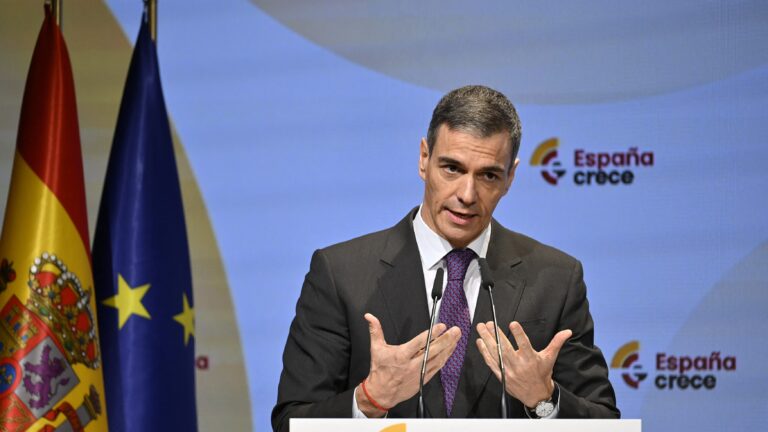In Europe and elsewhere, there is no shortage of attribution of superhuman powers to the ‘Israel lobby’ in the United States—embodied by the rather modestly funded American Israel Public Affairs Committee (AIPAC). The supposedly all-powerful ‘Israel lobby’—often a substitute for less polite phrases and ideas—is a convenient explanation for steadfast US support for Israel over the past decades. Yet, here in Israel, it is widely understood that the ‘Israel lobby’ would have no real influence in the US were it not for the passionate commitment of US Evangelical Christians to Zionist causes. Former Israeli Ambassador to the US and current Israeli Minister of Strategic Affairs, Ron Dermer, reiterated common knowledge when he stated that Evangelical Christians ‘had become the backbone’ of US support for Israel.
Since the 1967 Six-Day War and especially since President Richard Nixon’s decision to intervene with strength to help Israel during the 1973 Yom Kippur War, Christian support for Israel has been a cornerstone of the US–Israel relationship. To cite but one example of strong US Evangelical support for Israel, in a 2013 poll, significantly more US Christians reported believing that Israel was ‘given to the Jewish People by God’ than US Jews, and this number is undoubtedly skewed by 64 per cent overall Protestant support for this idea and 82 per cent support among Evangelicals. Such Evangelical support for Israel is embodied in a variety of large Christian pro-Israel organizations, including Pastor John Hagee’s Christians United for Israel (CUFI), which boasts over ten million Christian members today—making its membership roster alone larger than Israel’s Jewish population. President-elect Donald J Trump’s appointment of former Arkansas Governor Michael Huckabee as the new US Ambassador to Israel highlights steadfast US Christian support for the Jewish state.
US Evangelical support for Israel is rooted in broader Anglo-Saxon Protestant support for the Zionist movement, which at least traces back to the eighteenth century. This movement’s momentum increased throughout the nineteenth century, as witnessed by George Eliot’s second-longest novel, the passionately Zionist Daniel Deronda, whose publication in 1874 preceded that of Theodor Herzl’s The Jewish State by over two decades. Notwithstanding the support of some notable Catholic intellectuals, including G K Chesterton, before 1948, the Roman Catholic Church as an institution never looked favourably on the budding Zionist movement. In contrast, there were numerous Zionist strands in Protestant Christianity that predated the foundation of the Jewish state. Israel’s seemingly miraculous victory over combined Arab armies in the Six-Day War confirmed for Christian Zionists the ‘mandate of heaven’ for the new Jewish state in the Holy Land.
Declining US Christian Support for Israel
A mighty fortress, though it may seem, once steadfast US Evangelical support for the Jewish state is eroding. A 2018 survey of US Evangelicals aged 18–29 raised alarm bells among their elders when it revealed that support for Israel among this demographic plunged as much as 50 per cent according to some pollsters, whereas, simultaneously, young Evangelical support for Palestinian movements is skyrocketing. In the wake of escalating antisemitic rhetoric and incidents worldwide following the 7 October 2023 Hamas attacks, Israeli and US researchers are beginning to suggest with alarm that the former ‘cornerstone’ in the US–Israel relationship—US Evangelical support for the Jewish state—may stand on sinking sand.
In the US Catholic community, support for Israel is significantly more subdued than among Evangelicals and most other Protestant congregations—even if US Catholics remain more likely to support Israel than other Catholics worldwide. Indeed, US Catholics today register the least support for Israel among US Christians. Moreover, whereas ‘liberal’ Catholics are likely to accept broader left-wing anti-Zionist views, the dynamic movements of conservative US Catholics are witnessing a marked rise in hostility towards Jews and Israel.
This phenomenon is clear in the recent musings and publications at Crisis Magazine, founded in 1982 at Notre Dame, and for decades a mainstay of conservative US Catholic movements. Since the 7 October attacks, its current editor-in-chief, Eric Sammons, has repeatedly criticized former pontiffs such as John Paul II and Benedict XVI on X for praying at the Western Wall. He referenced this bugbear of his again on 17 July 2024, when Sammons posted on X a photo of Vice-President-elect JD Vance praying at the Western Wall and pontificated: ‘Politics aside, no Catholic should do this.’ While he denies all charges of antisemitism, Sammons has been pleased to feature in Crisis articles such as James Jones’s ‘The New Passover of the Christian West’, an hysterical antisemitic screed that sports with blood libel, and concludes thus: ‘So what has now arisen is a New Passover: You smear the blood of Palestinian children across your lintel, and the spirit of cancel culture passes you by unharmed…Through the blood of Palestinian children, you bind yourself with the powers and principalities of this world—all to ward off the spirit of cancel culture.’ This example is, sadly, but a much exaggerated and angrier expression of rhetoric and ideas not uncommonly found among young conservative US Catholics today. Meanwhile, the ‘liberal’ Pope Francis has suggested that Israel should be investigated for its supposed ‘genocide’ in Gaza. Keeping in mind quickly evolving US Catholic perceptions of Jews and Israel in the broader US Christian–Jewish relationship is especially important given the preponderance of Catholics in the new Trump administration, and the likelihood that the third Catholic US president will be Vice-President JD Vance, a conservative convert to Catholicism from an Evangelical background.
Although there are many reasons behind declining US Christian support of Israel, one stands out from the crowd of theological and political motives: more so than in the past, recent US Christian attitudes about Israel emphasize perceived Israeli mistreatment of Palestinian populations, and especially of local Christians. Perhaps the doyen of indeterminately Christian or Christian-inspired US nationalism, Tucker Carlson, recently gave vent to these rising concerns among young US conservatives—whose practice of Christianity may be limited, but who still look toward (dare we say?) Judeo–Christian values for inspiration—when he interviewed the Palestinian Lutheran Reverend Dr Munther Isaac. This outspoken and well-travelled Lutheran minister is basically rebranding and regurgitating the 1980s-era ‘Palestinian Liberation Theology’ developed by the Jerusalem-based Episcopalian pastor, Naim Ateek, and spread via the latter’s Sabeel Ecumenical Liberation Theology Centre in Jerusalem. Carlson opined during this sympathetic interview with the Reverend Munther Isaac: ‘If you wake up in the morning and decide that your Christian faith requires you to support a foreign government blowing up churches and killing Christians, I think you’ve lost the thread.’
Carlson’s open condemnation of Israel—implying that Israel is committing genocide and affirming that Israel is going out of its way to kill Christians and to blow up churches—is part of a larger trend on the US nationalist and libertarian right. While drafting this letter, I opened the homepage of Lewrockwell.com, a well-known right-libertarian website that claims to have 300,000 unique visitors and over three million pageviews per month. The first featured article was by Ilana Mercer, a ‘paleolibertarian’ author of The Trump Revolution. Her featured article’s title did not leave much room for imagination: ‘SS IDF is “Liquidating” the North Gaza Ghetto’. Such vitriolic holocaust inversion is par for the course at Lewrockwell.com, whose daily featured articles regularly include a round-robin of writers who take every possible occasion to accuse Israel of proven genocide, gleeful murder of Palestinian toddlers, apartheid-like discrimination against local Christians and Taliban-esque destruction of Christian churches and holy sites. As tempting as it might be to see such accusations as fringe, it would be a grave mistake to do so. They are quickly coming to represent entrenched beliefs among large and growing segments of young US Christian or ‘Christian-nationalist’ conservatives, regardless of denomination.
Christians in the Holy Land and the Broader Middle East
When it comes to local Christians in Israel and the Palestinian territories, few US commentators—and certainly not the Evangelical community writ large—have the background knowledge, the intellectual and theological frameworks and the sheer patience needed to understand the complexities of this diverse community and its dodgy relationships with the Jewish state. According to 2023 Israeli government statistics, there are almost 190,000 Christians living in Israel today, representing about 2 per cent of the total Israeli population. Over three-quarters of these Christians are Arab, and most live in Israel’s northern districts. In the Palestinian territories, according to a 2017 report from the Palestinian Central Bureau of Statistics, there are about 47,000 Christian residents (of which fewer than 1,000 live in Gaza among the broader Sunni Moslem pre-war population of over two million), likewise representing somewhere between 1–2 per cent of the almost monolithically Sunni Muslim population of the Palestinian territories. The vast majority of Arab Christians in Israel and the Palestinian territories is Greek Orthodox, Greek Catholic or Roman Catholic (or all of the above, as, to complicate things further, most local Christian families have mixed representation from two or all of these owing to widespread intermarriage between members of the different Christian traditions). The fact that Carlson chose to present the local Christian population to his US audience by interviewing a Lutheran pastor—by far one of the smallest Palestinian Christian communities and absolutely not representative of the vast majority Arab Christians in the Holy Land—exemplifies the wilful ignorance, or deliberate deceptions, of many US commentators when it comes to understanding and portraying prevailing realities for local Christians.
The unique and ancient Christian community of the Holy Land has survived and often thrived under non-Christian rule since the Muslim conquest in 637 AD—save for the relatively brief Crusader interludes that were often scarcely better for local Christians. Today, as historically was the case, Arab Christians in Israel and in the Palestinian territories are generally more educated and more successful economically than their Muslim neighbours. An unpublished 2023 doctoral thesis submitted at Brandeis University by Dr Rima Farah describes in detail and compassion the difficult situation that local Christians face, squeezed as they are between much larger, conflicting Jewish and Muslim populations. As a small religious and ethnic minority in Israel, and again a small religious minority among the Arab populations in Israel and the Palestinian territories, there is no easy answer for local Christians. On the one hand, to integrate fully into the self-defined ‘Jewish state’ (Israel does not, however, have a state religion) poses challenges for them unknown to US citizens, as there are relatively few realistic avenues to cultivate non-religious civic nationalism in Israel. On the other hand, despite many ethnic and cultural affinities with fellow Arabs, Arab Christians here are keenly aware of how marginal they are among the Arab Muslim population, and fearful of discrimination or outright persecution if ever under the domination of Muslim political leadership.
‘Arab Christians here are keenly aware of how marginal they are among the Arab Muslim population’
It bears emphasizing here that, for all the difficulties Arab Christians face in the Jewish state, Israel is the only country in the Middle East where the Christian population is growing—which it did by 1.3 per cent in 2022. In contrast, over the past two decades, Christian populations in every Muslim-dominated country in the Middle East have declined rapidly—and this includes the Palestinian territories. Critics often attribute this decline of the Christian population in the Palestinian territories to Israel and its policies, but one should consider such contentions in light of unquestionable broader regional trends.
As firm Trump supporters such as Alina Habba have noted, the US is a top contender for having the greatest responsibility for the exodus of Christians from the Middle East over the past two decades, whose flight has been labelled as ‘genocide’ by many activists and analysts. The consequences of the voluntary US war in Iraq in 2003 led to the permanent departure of over 1,000,000 Assyrian Christians from the country. The ensuing regional destabilization significantly facilitated the rise of ISIS and the subsequent exodus of Christian communities in Syria—from which at least over 800,000 Christians fled in the 2010s, according to 2016 UN data. The number could very well increase after the recent fall of Bashar al-Assad. The 2003 US war in Iraq, therefore, contributed to the flight of at least 1,800,000 Christians from their ancestral homes in the Middle East. This low estimate is a figure double the worst-case total approximate estimates of 750,000 Palestinian refugees (the vast majority of whom were Sunni Muslim) who fled their homes in Israel and the current Palestinian territories during the 1948 Nakba. Meanwhile, the size and composition of the Christian community within Israel proper have remained relatively stable, despite breathless predictions of its impending doom since the 1950s.[1]
Christians in Israel, Pan-Arabism and Palestinian Nationalism
From Israel’s beginnings in 1948, local Christians have struggled to find a place in the Jewish state. This is in part owing to events and movements that long predated Israel’s founding. Despite their minority status among largely Sunni Muslim populations, long before the foundation of Israel, Arab Christians were at the forefront in developing and spreading Arab Nationalism and Pan-Arabism, and have been vastly overrepresented in the leadership of Pan-Arabist organizations and publications (eg the Syrian-born founder of the Baath Party, Michel Aflaq, was Greek Orthodox). After 1948, local Christians first widely espoused Nasserism and Pan-Arabism, only switching allegiances to Palestinian Nationalism after Nasser’s defeat and humiliation in the 1967 Six-Day War. This approach was markedly different from the similarly-sized 150,000-strong Israeli Arab-speaking Druze minority, which has jealously guarded its particular identity but broadly accepted Israeli political rule. By way of contrast, over 80 per cent of Druze men serve in the IDF, which has conscripted Druze since 1956, whereas IDF service remains voluntary for Arab Christians. In 2012 only 92 Christians had volunteered for the IDF, and 570 (or 18 per cent of the total eligible Christian population of Israel) for National Service by serving in their communities in local schools, hospitals, and police stations.
In recent years, however, noteworthy shifts have taken place when it comes to the historically low Christian participation in the IDF and National Service. In 2023 alone, 3,800 Christians took part in some kind of National Service—more than twice the number of ultra-Orthodox Jews in National Service. Moreover, between the years 2021–2022, 2,600 Christians joined the IDF. This surge in grassroots Christian volunteers is in part a reaction to the rise of radical Islam in the Middle East and the destruction of Christian populations in Muslim-dominant countries, including the Palestinian Territories, which has seen its Christian population decrease markedly since 1948, while Israel’s population has grown in contrast. Yet, many ideological and institutional blocks remain in Christian communities against harmonization into Israeli society. Also, recent years have witnessed a rise in incidents of Jewish calls to violence against Christians as well as verbal and physical assaults against Christian believers and clergy, as found in the 2023 US State Department Religious Freedom report on Israel.
‘Noteworthy shifts have taken place when it comes to the historically low Christian participation in the IDF and National Service’
The relationship between the Jewish state and local Christian populations is further troubled by the fact that Levantine Christians have also played an outsized role in the development of Palestinian terrorism. Two local Greek Orthodox Christians, George Habash and Waddie Hadad, founded the second largest group belonging to Yasser Arafat’s Palestinian Liberation Organization (PLO), the declaredly Marxist–Leninist Popular Front for the Liberation of Palestine (PFLP)—which brought such innovations as terrorist aeroplane hijacking into the world with the hijacking of El Al Flight 426 on 23 July 1968, and later collaborated with Carlos the Jackal, among other luminaries of international terrorism. Habash is still a popular hero for many Arab Christians in the region, and he has been hailed as ‘the conscience of the Palestinian revolution’. Although he died in 2008, Habash’s PFLP continues to ply its familiar trades and has claimed involvement in the 7 October attacks. Likewise, a splinter group from the PFLP, the Democratic Front for the Liberation of Palestine (DFLP)—which also proudly claimed 7 October participation—was founded by Nayef Hawatmeh, a Greek Catholic. Two Israeli-born Greek Orthodox Arab Christian women took part in the Black September 1972 hijacking of Sabena Flight 571 from Brussels to Tel-Aviv. During the Sayeret Matkal operation that killed or captured all the hijackers, none other than current Prime Minister Benjamin Netanyahu was injured by gunfire as he apprehended one of the Christian hijackers, Therese Halasa (Israelis tend to claim that Netanyahu was hit by friendly crossfire, whereas Palestinian activists proudly boast that Halasa shot him). Over the years, even notable local Arab clerics had their hand in the action for the cause of national liberation. In 1974 the Syrian-born Archbishop Ilarion Capucci, then Melkite Greek Catholic bishop of Jerusalem, was stopped by Israeli authorities while travelling from Beirut to Jerusalem in a car with Vatican licence plates—inside was a variety of small arms destined for PLO members. He was only released from Israeli prison in 1977 at the repeated entreaty of Pope Paul VI.
As for Roman Catholic locals, many misplaced sympathies were evident throughout the second intifada which, according to later interviews with Yasser Arafat’s widow—herself a convert to Islam from an elite local Roman Catholic family—was a pre-planned event and not a spontaneous reaction to Ariel Sharon’s 2000 visit to the Temple Mount. The most grievous episode of misguided Roman Catholic compassion took place in April 2002, when several dozen armed Palestinian militants forcefully occupied the oldest surviving Church in the Holy Land and the birthplace of Jesus Christ, the Church of the Nativity in Bethlehem, barricading themselves within the premises for over 40 days. Many local Franciscans and the then Nazareth-born Latin Patriarch of Jerusalem, Michael Sabbah, decried the ‘siege’ when Israeli troops surrounded the ancient church, but remained remarkably at peace with the armed Palestinian Muslims who were squatting in and desecrating one of Christianity’s holiest sites. The Holy See itself remained mum. It is hard to imagine a better example of ‘Stockholm syndrome’ than this sorry episode, when local Catholics and even the Vatican seemed more intent on supporting la Résistance than protesting the occupation of the birthplace of Jesus Christ by Muslim militants. Perhaps some occupations are more just than others.
After the 7 October attacks, when many in Israel retreated to simpler ethnic and nationalist narratives, according to a November 2023 poll, almost 70 per cent of Arab Christians believed that ‘solidarity between [Israeli] Arabs and Jews had weakened due to the war’. These tensions are not helped by the fact that a small minority of local Christians have, historically, played crucial and highly publicized roles in anti-Israel activism and even anti-Israel terrorism. It is also important to understand that unlike previous generations of Israelis, dominated by an Ashkenazi elite that generally had frequent contact with Christians and considerable familiarity with Christianity, newer generations of Israelis—today the largest group of Israeli Jews, 40–50 per cent—have Eastern Mizrachi origins, and come from predominantly Islamic cultures—generally have few contacts with Christians, marginal understanding of Christianity and often little awareness that Christians even exist in Israel.
‘The war created a sense of shared destiny between Arabs and Jews in Israel in recent months’
That said, it is not all negative news when it comes to relations between Israeli Jews and Arabs since 7 October. In the immediate aftermath of the attacks, there was a surge of Israeli Arab (Christian and Muslim) identification with Israel, as up to 70 per cent of Israeli Arabs surveyed related that they felt ‘part of the [Israeli] State (very much and quite a lot)’. Also, in the same survey, 68 per cent of Arab Israeli Christians (versus 53 per cent of Muslims) agreed that the 7 October attack ‘does not reflect the values of Islam and Arab Society in Israel’—a statistic on par with Israel’s Druze community. Over 85 per cent of all Arab Israelis polled supported civilian volunteering efforts during the war. According to a later June 2024 poll of Arab Israelis, over 50 per cent believed that ‘the war created a sense of shared destiny between Arabs and Jews in Israel in recent months’, including 61.2 per cent of polled Christians (once again, similar to the 62.5 per cent from the Druze). In the wake of the 7 October attacks, there is, then, evidence that many Arab Israelis have become more vocal in their support of Israel. There is still a long way to go, however, towards the broader integration of the prosperous, well-educated and industrious local Christian community.
This summary description of the complex, delicate relationship between Israel and local Christian communities seems totally absent from the political and diplomatic views and calculations of US Christians and politicians about Israel and its current conflicts. Both for US and for Israeli politicians and populations, it would be a mistake to persist in this unawareness. For concerned onlookers from afar who do not have the time to devote years of study to this matter, it is highly recommended to abstain from definitive judgements about local Christians and their situation purveyed by local and foreign narrative-jockeys.
[1] See chapter one of Amnon Ramon’s Christians and Christianity in the Jewish State (1948–2018).
Related articles:







